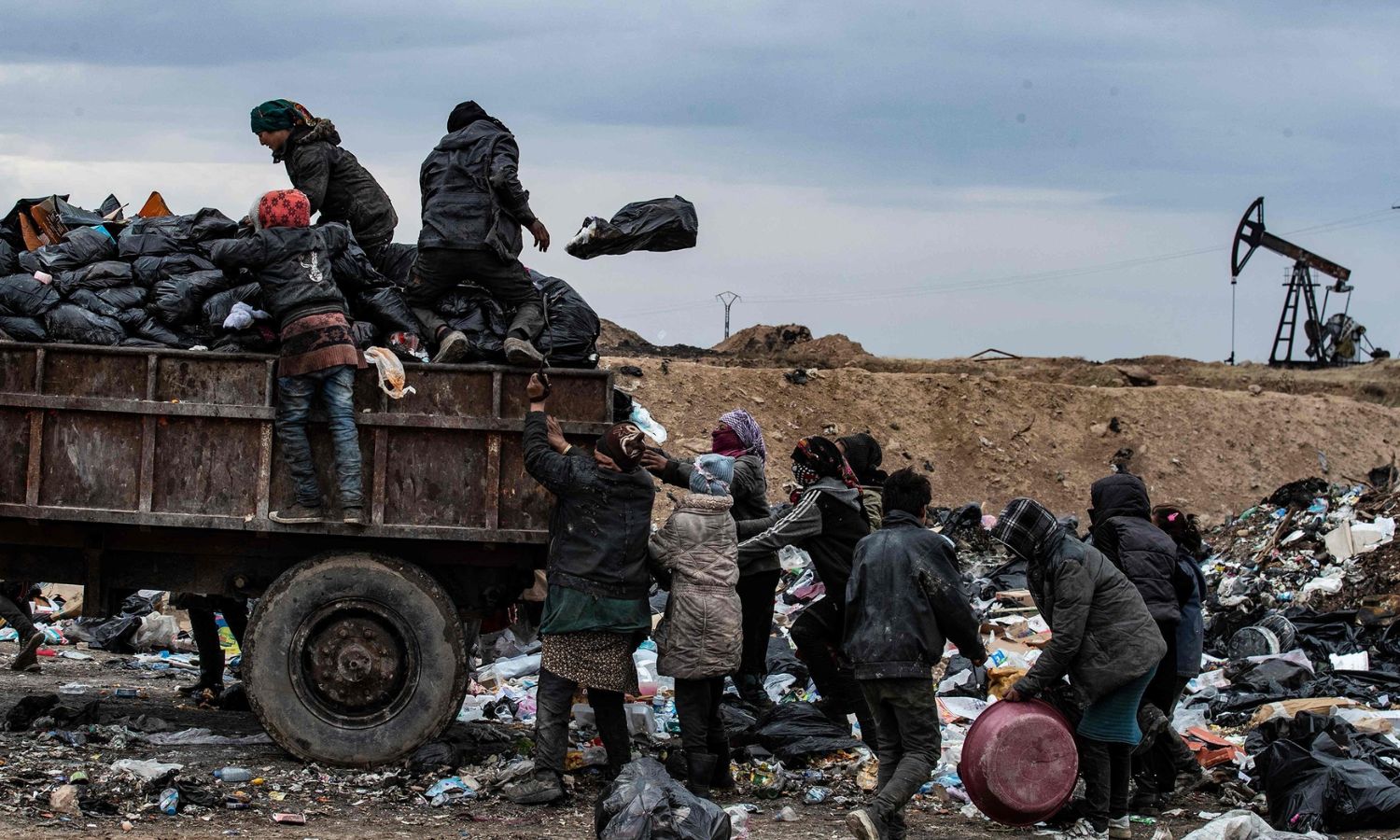



The Autonomous Administration of North and East Syria (AANES) estimated the expected deficit in the general budget for the fiscal year 2024 to be $389 million.
Based on the planned expenditures and projected revenues for the current year, AANES announced on June 8 that it estimated general revenues to be $670 million, while total expenditures reached $1.059 billion.
The budget deficit was not surprising, but at the same time, it is noteworthy that the Autonomous Administration manages the richest part of Syria’s geography, where most of the oil wells and arable lands are concentrated.
While AANES estimated its revenues for the current year at $670 million, it stated that its expenditures exceeded $1 billion, during a period where no projects or plans were evident on the ground, except for the rehabilitation project of Rashid Bridge in Raqqa, and the restoration of the Raqqa-Mansoura and Raqqa-Hazima roads, among similar projects here and there.
At the same time, AANES faces accusations that the Kurdistan Workers’ Party (PKK) controls the region’s economic resources and directs them to the Qandil Mountains where its stronghold is located.
It is difficult to track the sources of funds of the Autonomous Administration, which does not usually disclose details of financial operations in the areas under its control, nor does it indicate the size of its income. It attributes its financial deficit to Turkish attacks on its controlled areas and their infrastructure.
Karam Shaar, director of the Syrian Program at the Observatory of Political and Economic Networks and Doctor of Economics, believes the current budget deficit is due to several reasons, most notably the “difficult legacy in the region’s institutions.”
Shaar explained to Enab Baladi that the Autonomous Administration did not inherit functioning institutions but started building its own from scratch, pointing out that it lacked an institutional foundation to manage the region.
He added that there is an ideological aspect to the budget deficit reasons, as AANES’ proposals for the region’s economy and its institutions still carry “communist whiffs,” evident in the names given to its activities.
He noted that this ideological approach gives wide freedom to rural parties, which might not be the best choice for economic growth in a region like northeastern Syria, especially since this approach is applied discriminatorily against the Arab component of the region’s inhabitants.
Shaar pointed out that the Kurds in the region were systematically discriminated against in Syria before 2011, but this matter is separate and cannot be considered at present.
Looking at how the Autonomous Administration manages the economy of northeastern Syria, it is noticeable that it derives from the ideas of the former leader of the Kurdistan Workers’ Party (PKK), Abdullah Öcalan, who has been imprisoned in Turkey for years.
Öcalan had previously issued a series of books proposing a “societal model” for the Kurdish people, directly drawing his ideology, “Ocalanism,” from the American social theorist Murray Bookchin, a radical leftist who wanted to eradicate capitalism through the concept of “libertarian municipalism,” according to a brief analysis published by the Washington Institute in 2017.
Tracking how the Autonomous Administration collects and spends its revenues is difficult, but its primary resources come from oil sales, income taxes and fees, and tariffs on imported goods. Meanwhile, its officials continue to face accusations of corruption and cronyism, despite repeated reform efforts.
In 2020, the Autonomous Administration announced the formation of the General Control Authority after most of its institutions faced corruption and embezzlement accusations.
Researcher Karam Shaar believes that corruption has a significant role in the recent general budget deficit of the AANES, telling Enab Baladi that the impact of corruption on the economic factors in northeastern Syria is evident, although assessing it accurately is difficult at present.
He added that the countries supporting the Autonomous Administration are unable to control the corruption situation in the region, and oil smuggling operations to areas under the control of the Syrian regime serve as a live example of the region’s corruption.
Shaar believes that the Kurdistan Workers’ Party benefits from the economic resources of northeastern Syria but cannot be considered the primary cause of the region’s deteriorating economic conditions.
According to a study conducted by economic researcher Sinan Hatahet, published under the Middle East Directions program in January 2020, the Finance Authority is the central institution in the Autonomous Administration responsible for managing the region’s finances. Local councils also have the right to collect and impose taxes, and gather revenues imposed on most professions and trades, including small businesses like street vendors, shops, and public transportation.
AANES justifies these measures as aiming to fund public services, but there is a general belief that the quality of services provided does not match the amount of collected taxes, according to the study.
In the same context, the Co-chair of the Finance Authority in the Autonomous Administration, Ahmed Youssef, said in an interview with North Press that the Autonomous Administration primarily relies on oil revenues, which he described as a “significant flaw” in the economy.
The Autonomous Administration has been trying to reduce the percentage of oil contribution to its total revenues since 2021, working on diversifying sources and increasing secondary revenues from regions, companies, taxes, service fees, and others.
In 2021, the reliance on oil in the Autonomous Administration budget was 92% of total revenues, while customs revenues accounted for 7%, and other revenues 1%, according to Youssef.
if you think the article contain wrong information or you have additional details Send Correction